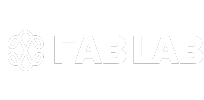The global textile industry is at a pivotal moment. With increasing consumer demand and stricter regulations from the USA and Europe, sustainability is no longer a niche trend—it is a core business imperative. As a strategic partner for leading fashion, activewear, and workwear brands, Fab Lab International understands that the future of textiles is rooted in innovation, circularity, and complete supply chain transparency. This blog explores the key shifts shaping the industry and how your brand can stay ahead of the curve.
The Future of Sustainable Textiles: Navigating Innovation and Transparency
- Beyond Organic Cotton: The Rise of Innovative Sustainable Materials
For years, organic cotton was the standard-bearer for sustainable fabrics. Today, the conversation has evolved to include a new generation of innovative and performance-driven materials that offer enhanced environmental benefits.
- Recycled and Regenerated Fibers: The movement toward a circular economy is driving innovation in recycling. Materials like recycled polyester from plastic bottles (rPET) and regenerated nylon from fishing nets are now mainstream. More advanced techniques like fiber-to-fiber recycling are allowing old garments to be broken down and reborn as high-quality, new fibers, creating a closed-loop system.
- Bio-Based and Agronomic Waste Fabrics: Scientists are turning to nature for new textile solutions. Fabrics made from pineapple leaves (Pin~atex), mushroom leather (Mylo), and even algae-based yarns are entering the market. These materials not only reduce reliance on petroleum-based products but also turn agricultural waste into a valuable resource, offering a truly innovative and eco-friendly solution.
From Linear to Circular: The New Textile Economy
The traditional linear model of “take, make, dispose” is no longer viable. The circular economy aims to keep materials in use for as long as possible, eliminating waste and pollution by design. For the textile industry, this involves a strategic approach across the entire product lifecycle
- Design for Durability: The first step is creating high-quality, durable garments that last longer, reducing the need for constant replacement.
- Traceability and Transparency: Using technologies like blockchain to track materials from their source to the finished product ensures a transparent and ethical supply chain. This allows brands to confidently communicate their sustainability efforts to consumers.
- Waste-to-Value Solutions: The focus is on turning textile waste from production (pre-consumer) and end-of-life products (post-consumer) into valuable new materials. This includes upcycling, downcycling, and advanced chemical recycling processes.
Verifying Claims: The Importance of Certification and QA/QC
As the market for sustainable textiles grows, so does the risk of “greenwashing.” This is where the role of third-party verification becomes critical. Brands must be able to prove their claims with credible certifications and rigorous quality assurance.
- Key Certifications: We specialize in sourcing and developing fabrics that meet leading certifications such as GOTS (Global Organic Textile Standard), Global Recycled Standard (GRS), OEKO-TEX®, and Bluesign®. These certifications provide independent, third-party verification of a fabric’s environmental and social impact, giving your brand the credibility it needs.
- Third-Party QA/QC: Our third-party QA/QC services in China and Pakistan are essential for ensuring that your products adhere to these standards. Our objective inspections and comprehensive testing guarantee that every garment lives up to its sustainability claims and meets your brand’s quality benchmarks before it ever leaves the factory.







